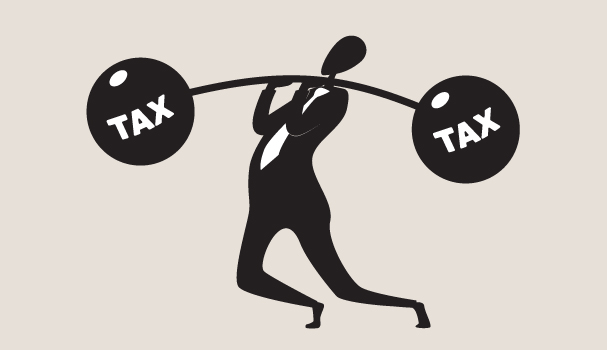Commercial tax obligations could hardly be under more public scrutiny than they are at the moment and, in light of the potentially questionable tax avoidance practices of several of the nation’s largest firms, there are many eyes trained on enterprises’ tax practices and it’s easy to see how slip-ups can have huge reputational, as well as financial, costs. But in reality few small- and medium-sized enterprises (SMEs) actively attempt to avoid or, worse, evade making the required tax contributions. Where many organisations run foul of tax legislation is simply being unaware of exactly what is required of them.
Despite the current focus on the subject, it is uncommon for SMEs to find themselves in hot water over corporation tax. “Quite often small companies’ corporation tax is probably going to be handled by an accountant,” says Kate Schmit, partner at Stevens & Bolton. “Typically things that can go wrong are in relation to PAYE and VAT.”
Smaller companies are more likely to tackle their own PAYE and VAT returns and, while this can often be the most prudent way for them to process these taxes, it does mean that very small misunderstandings can lead to quite significant issues long-term. “There could be weaknesses in their systems that are inherent and are repeated month-on-month or quarter-on-quarter.”
Often these weaknesses are very simple oversights. “It’s the small things,” remarks Schmit. An example she draws on are employee share-acquisitions where Form 42, concerning the annual reporting obligations, can often be forgotten. Avoiding these simple mistakes is often just a matter of planning and keeping an eye on the various deadlines. “It’s about diarising and keeping very careful watch in terms of ensuring that you’re hitting all of the filing deadlines, that people remember all their PAYE filings in the summer.”
Another factor that can often cause start-ups to trip is holding steadfast to old systems, even if they are no longer appropriate. Something Schmit has seen is when people have founded their own enterprise and involved friends who work on a self-employed basis. “It is possible that there is a point at which their self-employed status ceases to be applicable – they’re really employees but your systems haven’t necessarily caught up with that,” she says. “That’s a problem because what you’ve managed to produce is some employees who you’re not paying via PAYE.” Not only does this put you at risk from a visit from HM Revenue & Customs but it will severely put others off from involving themselves in your enterprise if they feel your PAYE history isn’t up to scratch. “Having lots of self-employed contractors on the books where their employment status is a little dubious is going to have practical, knock-on effects.”
Many of the mistakes enterprises make with regards to their tax are simply down to being insufficiently aware of legislation. “They have a misunderstanding of or have misinterpreted what they’re supposed to be doing,” Schmit comments. Often in these cases the organisation has simply assumed that following common sense on minor points of doubt will see them right, but unfortunately this can lead to difficulties. “They are fully intending to be 100% compliant but there just is something technically that is not quite right.”
Unfortunately, the old legal precedent that ‘ignorance of the law is no excuse’ applies here. “It’s not much of a defence,” says Schmit. Generally, on a PAYE or a VAT visit, while the main focus will be to identify processes and areas where things aren’t being done correctly and recover underpaid tax, failure to adhere to legislation can result in penalties. However, there may be areas where small oversights might not be seen as warranting heavy repercussions – for example, errors in mileage claims or allowances around an office party. Schmit explains: “These are all things where a reasonable inspector will have a conversation with you and agree: ‘Yes, this is the way we’re going to deal with it’.”
Despite this, it is often far less costly to simply make sure things are right the first time around, making sure your enterprise is tax compliant from its first launch. “Even if you’re going to do your VAT returns yourself, having an advisor and some form of overview on a periodic basis would not be a bad thing,” Schmit feels. Essentially, tax compliance can just be a matter of ensuring you have access to appropriate advice for the size of your business – whether that’s an accountant handling all of your returns or just a periodic health-check. “I think that probably from the outset having advice that is appropriate for your size is not a bad idea,” she says. “And also, if you’re not sure about something seek some assistance or advice in relation to that.”
There is also another very good reason for seeking advice: you may be entitled to relief that you aren’t making use of. “Research and development tax credits are a prime example where companies are entitled to tax relief that they are not fully utilising,” says Schmit. It’s worth bearing in mind that there is a world of difference between the recent high-profile avoidance cases and claiming reliefs to which you are legitimately entitled. Evasion, questionable avoidance and legitimate avoidance may come with a sour taste but making use of extant tax reliefs is as important as making sure you’re compliant with legislation. “That is really where it’s at,” she concludes. “One should ensure that one is undertaking sensible tax-planning plus ensuring that your compliance is as it should be.” ![]()
Share via:


















































